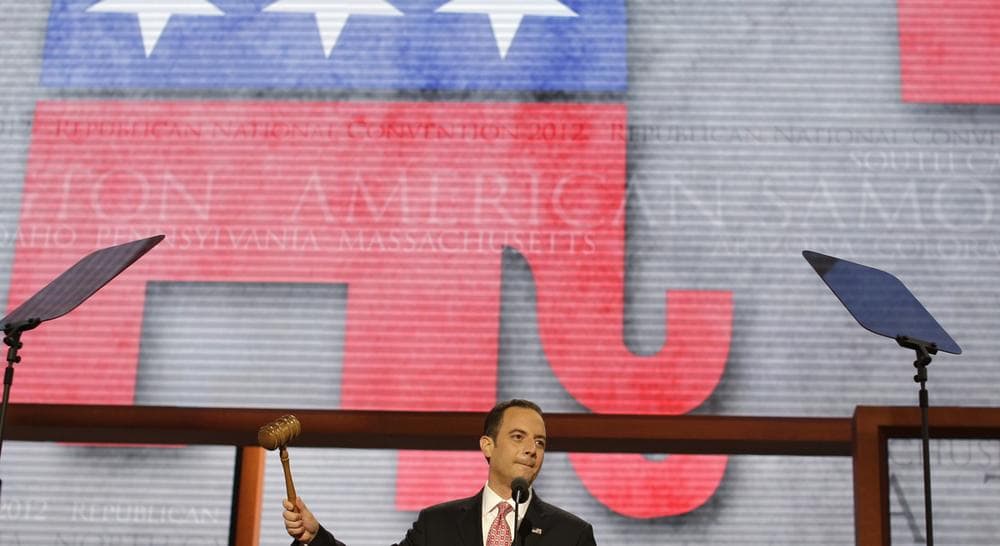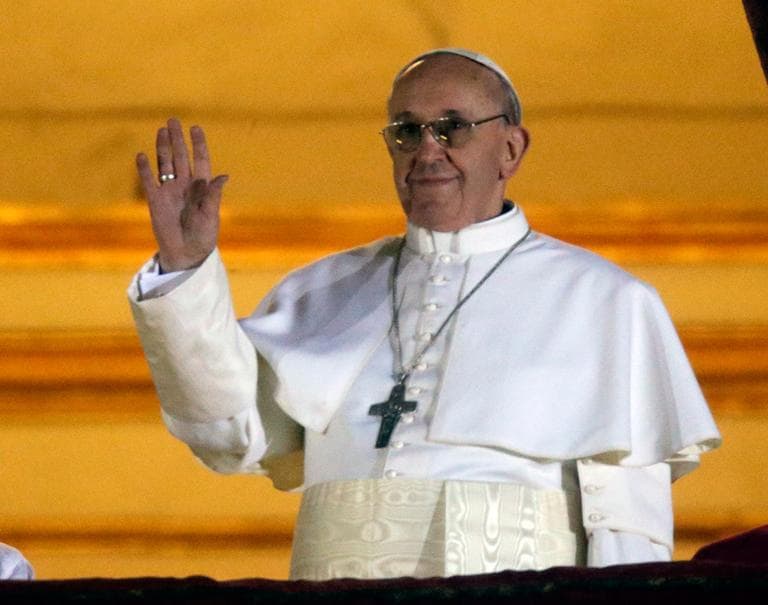Advertisement
A Failure To Connect: Or, What The Catholic Church And The GOP Have In Common
If there are two institutions in greater need of rebranding in the eyes of America’s youth than the Catholic Church and the Republican Party I am not aware of them.
Public opinion research has suggested for some time that Millennials (young Americans born between 1980 and 2000) are less likely than older generations to attend services, believe religion is important in their lives and affiliate with religious institutions.
Pope Francis and his Cardinal electors seem to “get it.” The jury is still out on Reince Priebus and the Republican National Committee.
In one of the more dire signs of the future health of America’s churches, when Millennials are compared to young people who came of age in the 1970’s and 1980’s, today’s youth are nearly twice as likely to have no religious affiliation. Of significant interest to our own Cardinal Sean O’Malley and other U.S. bishops, young people under 30 are under-represented in the Catholic Church as a percentage, while they are over-represented in historical Black and Mormon churches across the country.
Among Republicans in Washington, the story is largely the same. While Republicans won the youth vote in three of five presidential elections between 1972 and 1988 and came within two points of making it four out of five in 1980 — they have not topped 46 percent since 2000, losing the four elections of this century by an average of nearly ten percentage points.

Like attending religious services, voting is a habit and if the powers that be in both institutions do not find meaningful ways to connect with the largest generation in our nation’s history, neither will look the same in 20 years. Spirituality, financial viability and, importantly, attendance on the days that matter most (Sundays and Tuesdays) will continue to decline to the point where both institutions will become extinct or largely irrelevant to the masses.
The lesson from the last week is that Pope Francis and his Cardinal electors seem to “get it.” The jury is still out on Reince Priebus and the Republican National Committee.
Last week’s Conclave offered the 76-year-old Cardinal Jorge Mario Bergoglio as the first Jesuit pontiff. Pope Francis, known in his native Argentina as a modest man of the people, took little time to send a message to the world that leading a global organization today starts with connecting and finding common ground with its stakeholders. The ride to the Vatican in a van with his brother Cardinals, asking for prayers from the people, settling his hotel bill in person and walking the streets of Rome this past weekend are all signs that he is thinking anew and resetting expectations in the hope of gaining trust and advancing a conversation about social justice, economic inequality and peace. While he knows that there is church doctrine that young people in a modern society do not and will not ever agree with, Pope Francis has decided to take the first step in rebuilding the Church’s fractured relationship on the common ground he shares with Millennials.

With the release of the 100-page RNC “Growth and Opportunity” book this week, the leadership of the Republican Party has told their fellow Republicans that they understand there’s a problem with Millennials, but I am not sure they are fully committed to solving it. From where I sit, their analysis of the situation focuses far too much on style, age and in their words, being “detached from pop culture” and lacking Obama’s “cool.”
“While the Democrats have Joe Biden and Hillary Clinton, we have leaders like Marco Rubio, Paul Ryan, Kelly Ayotte, and Bobby Jindal, among many others. We also have a youthful RNC Chairman, Reince Priebus.”
This is the same forced superficial strategy that resulted in Paul Ryan — who is himself, a member of Generation X — talking awkwardly at the Republican National Convention about what’s on his iPod, rather than something that could actually begin to form some connective tissue with young Americans.
What Pope Francis is showing us after week one is that while age matters, it is not the only or even the most important indicator of whether or not someone can communicate and connect with young people. If offered a choice between 65-year-old Hillary Clinton and 41-year-old Marco Rubio today, is there any question that the Democrat would win? And by not including 50-year-old Chris Christie in the list above, is the RNC saying that he would not be an attractive choice for young people in 2016?
The RNC’s strategy for Millennials also includes recommendations such as advertising more in college newspapers, hosting quarterly youth discussions and more interviews on outlets that “are popular with the youth demographic” such as USWeekly, People, MTV and The Daily Show. While I do not mean to diminish potentially substantive tactics that also include “promot(ing) forward-looking positive policy proposals,” this strategy shows an overall lack of judgment and understanding of what Millennials are seeking.
Millennials came to politics in 2004 and 2008 from teenage years spent performing community service in schools, churches, neighborhoods and villages around the world. That is not a Democratic issue, nor a Republican one. The Jesuits earned the moniker of “God’s Marines” for doing the same — taking their mission to literally anywhere on earth they were needed and often in the most extreme conditions imaginable. The key to success for the Church and the Republican Party is a recognition and return to those roots. If both institutions can connect with the “service gene” inherent in Millennials in an authentic and meaningful way, then they have hope of broadening the discussion in the future on issues of importance, whether they are social, economic, or international in scope.
Progress will be slow, it will take time, but if Pope Francis and Chairman Priebus are truly interested in saving their institutions long-term, they must begin immediately and the answer may lie in the spirit of the Jesuit order itself.
This program aired on March 20, 2013. The audio for this program is not available.